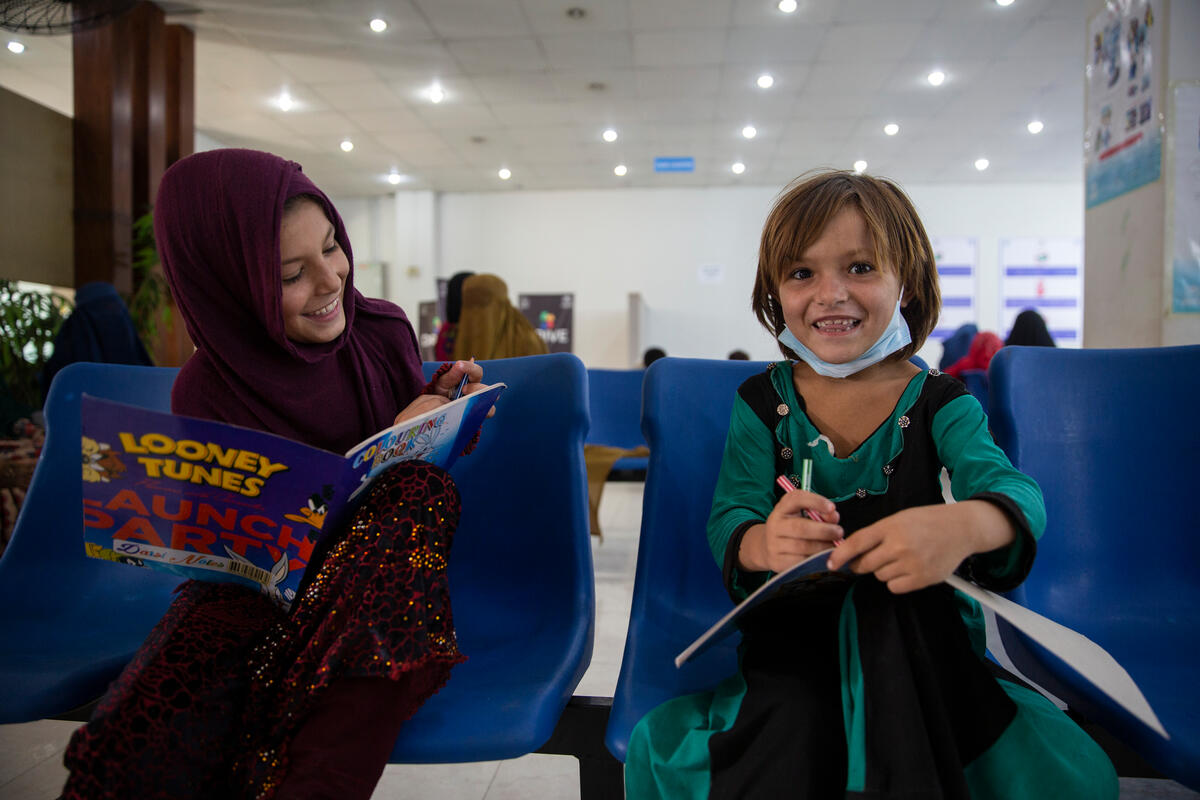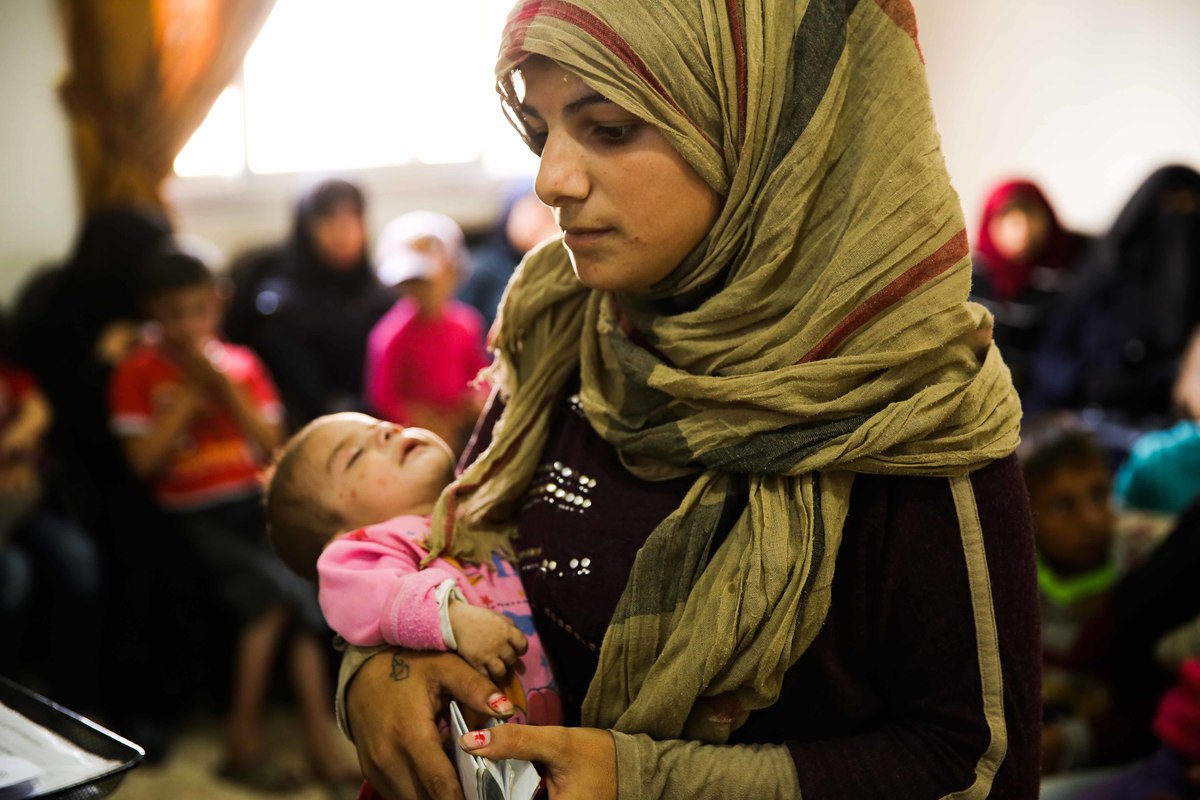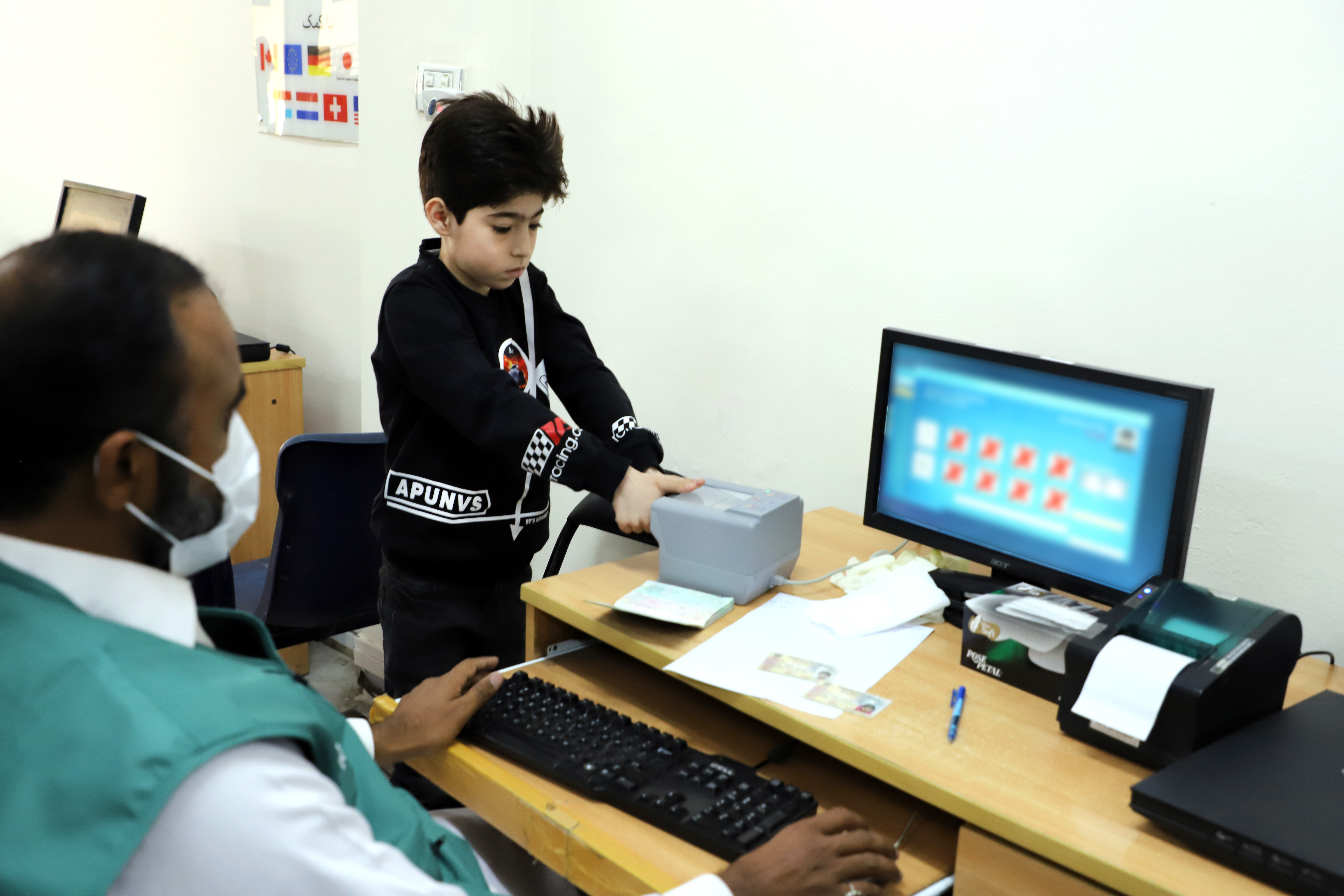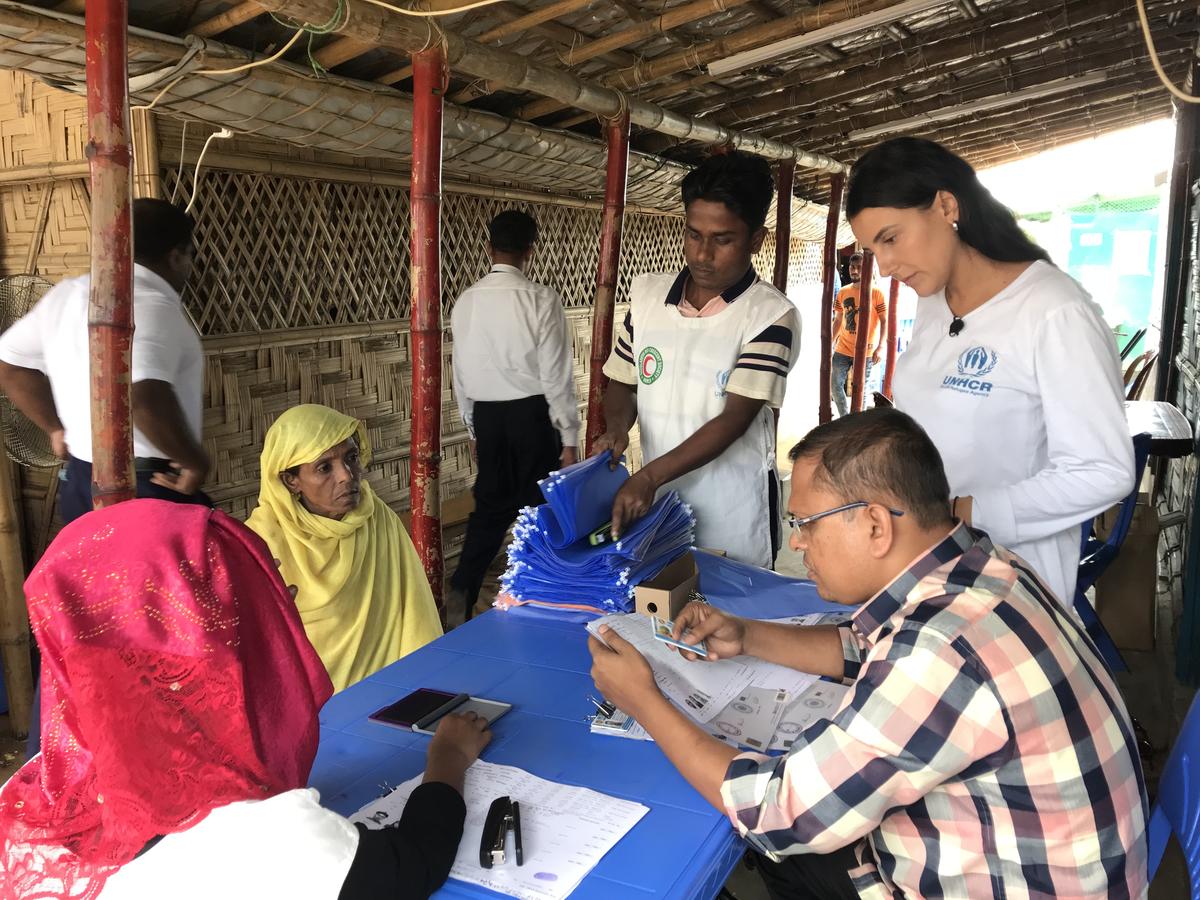Pakistan registers 2 million Afghans, exercise nears completion
Pakistan registers 2 million Afghans, exercise nears completion

ISLAMABAD, Pakistan, February 2 (UNHCR) - The crowd outside is getting bigger and testier. Bushy bearded men wrapped in winter shawls are packed in the front yard of the registration centre in Islamabad's I-11 area while their women and children wait under a shelter. One man tries to jump the queue, only to be mobbed.
More than 2 million Afghans - over 80 percent of the target population of 2.4 million in Pakistan - have been registered since last October in the Pakistan government-run exercise to provide Proof of Registration (PoR) cards to Afghans who were counted in the 2005 census. Valid for three years, the PoR card recognises the bearer as an Afghan citizen temporarily living in Pakistan.
More Afghans are waiting for their cards, and they're getting anxious as the deadline approaches. "Our family missed the first deadline for getting registered," said Mohammad Ayub, a 33-year-old originating from Logar province, Afghanistan. "But with current tensions between Pakistan and Afghanistan, we realise we have to get this card if we wish to stay in Pakistan."
Amid the immense technical and logistical challenges of registering such a large and mobile population, the authorities have extended the deadline from December 31 to January 19, and again to February. Pakistan's National Database and Registration Authority is conducting the exercise with the support of the Commissionerate for Afghan Refugees (CAR) and UNHCR.
Under the memorandum of understanding for this exercise, only Afghans who took part in the 2005 census in Pakistan can be registered. However, some eligible Afghans could not find their names in the census database for reasons ranging from spelling discrepancies to the fact that they gave false names during the census that they have since forgotten.
"We are really making an effort to capture as many eligible Afghans as we can," said Indrika Ratwatte, the UNHCR official in charge of the registration. "Early this year, we asked the Afghan elders, CAR and MoRR [Afghanistan's Ministry of Refugees and Repatriation] to provide lists of names of Afghans who were rejected and who should technically be in the census database. We will register them as long as they can show documents to prove they were in Pakistan at the time of the census."
The time frame for compiling these lists was limited in order to include bona fide Afghans in Pakistan who should be within the scope of the registration, while excluding those who may attempt to cross the border from Afghanistan just to register or abuse the system.
Rumours have fuelled intense interest in registration. Some claim PoR cards can offer them Pakistani citizenship. Others say the cards will enable them to be resettled in the west. Both are misconceptions - the PoR card is for identification and does not confer any additional rights or status on the bearer. It is not a travel document or a work permit.
The government of Pakistan has reiterated that upon the completion of registration, Afghans without PoR cards will be subject to the relevant national laws.
With so much at stake, reports of attempted bribery have surfaced. "Sometimes, when someone's name is not found in the database, they offer us money to process them anyway. We tell them not to waste their time," said a UNHCR worker at one of the registration centres.
Afghans are constantly reminded that registration is free of cost and that any offer or demand for payment must be reported to UNHCR and the authorities for disciplinary action.
Fifteen weeks after the start of registration, the exercise has been completed in Sindh province, Pakistan-administered Kashmir and most parts of Punjab. It will continue in areas with a high density of Afghans still to be registered, including Islamabad, urban Quetta and Peshawar.
"We're now in the final phase of registration," said UNHCR's Ratwatte. "NADRA is enhancing the capacity in the remaining centres to process as many eligible Afghans as quickly as possible. Where needed, mobile registration vans have also been deployed to ease the pressure on these centres, and to reach out to isolated pockets of Afghans who need to be registered."
In addition to the issuance of PoR cards, the US$6 million registration exercise is collecting key data on the remaining Afghan population in Pakistan in order to seek durable solutions to their long-term displacement.
By Babar Baloch in Islamabad
and Duniya Khan in Quetta, Pakistan








